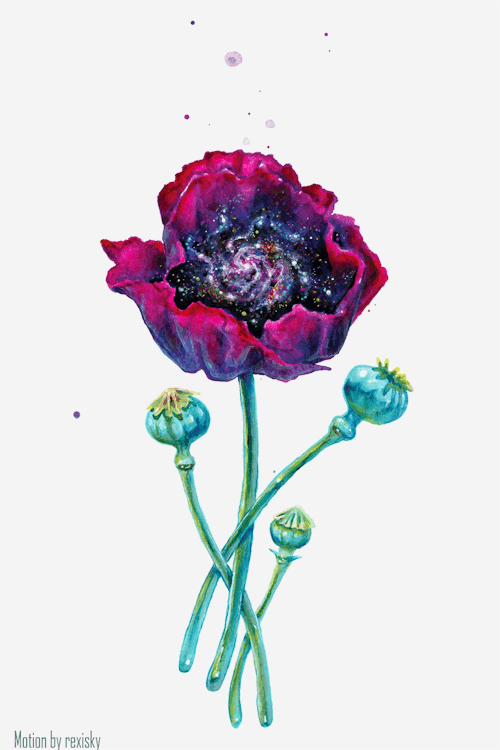#hellenic
I am a tree.
My roots penetrate deep into the Earth, I grow strong and I gain knowledge from the nature that surrounds me. I am calm, I am collected, and I am strong.
My body grows up, it is hardened on the outside to protect me. It branches off into my many limbs. I stand tall, swaying in the breeze.
My emotions, my thoughts, my experiences are my leaves, my blossoms, and my fruit. They grow big, strong, and stable in the light of the gods, and the rain of the goddesses. When one fails, a new one takes it’s place. I am a tree, of love and of worship.I thank you for everything. I thank you for your patience, your kindness, your understanding and caring, your guidance, your strength, and your love. You are welcomed in my life, my heart, and my family for as long as you like. Truly, it’s an honour to worship you and devot myself to you again and again every day and every night.
An idea for witches and hellenic/nonhellenic polytheists/monotheists, make a sigil that represents your god/goddess/deity’s name. For non witchy mono/polytheists, use all the letters in your deity’s name to create a symbol, and draw that symbol on things you wish to dedicate to your deity.
I don’t usually get upset when PJO fan blogs reblog my devotional writing, because they’re still allowed to like my writing, I don’t know if they’re also Hellenists, and I do still appreciate the exposure for my writing. But someone reblogged one of my devotionals to the Theoi, with added commentary about how it didn’t line up with the characterizations and events from the book series, and it was pretty disrespectful. I’m actually angry. Like, really angry.
My deities are not characters in your fantasy novel. You don’t get to look at my faith–myreligion–and complain that the figures of my worship are not the same figures as in your book series. My very real, very alive religion is not aprop for your fandom.
You’re allowed to like your books. You’re allowed to build a fandom around them. You’re allowed to create and share material for that fandom.
You are not allowed to critique a spiritual practice in the context of your fandom.
You are not allowed to disrespect an entire religion, it’s deities, and the people who follow that religion, because it doesn’t match up with your limited and incorrect perception of those deities.
You are not allowed to complain that actual religious practices don’t fit into your narrative.
My faith is not your fandom.
Floral Ties by MYTIESHOP on Etsy
boys + flowers is my favorite combo
Intresting.
This would be a good ideal for an offering/devotional.Post link
My gods are not perfect. They don’t need to be. My gods are not mortals, they are not humans, and therefore it is IMPOSSIBLE to compare them to humans, or to put them to human standards. My gods are not perfect, they have made mistakes in their lives, they’ve made mistakes in my life, too. But they are gods. They were there for me when I needed them. They supported me when I couldn’t support myself. My gods loved me, even when no one else did.
Don’t you dare ever misrepresent, disrespect, or demean them in any way. Just because you might not see them my way, does not mean that I don’t love them with all my capability, that they are not my protectors and guides, that they are not my family, or my loved one.
These are my gods, this is my religion. Do not mute me.
All encompassing, intoxicating,
Taken at his will,
Returned when he’s done.
He will say no,
You will beg.
He takes me when I’m ready,
He gives me back on time.
It will be time,
Before I know love ,
For now,
I know anger,
And hunger,
And I want more of him.
It is his game,
We will play.
He has his rules,
We play by them.
He bows to no one,
We bow to him.
He controls the mind palace.
He is darkness.
He is ethereal.
He is eternal.
He is sleep.
And He is coming…
Soft, swaying, lulling, grey
He takes you when he wants you
You can invoke his presence
But He’ll never be far
As draining as invigorating
He will open the world for you
He will be the last person
You will mistake him
When he comes
He waits patiently
But He is always there
There is no escape
He will take you
He is sleep
Preparing you for his twin
He will deliver you onto his brother,
Death
I just want to say…
Thank you, Lord Hypnos, for loving me, giving me strength, and encouraging me every step of the way. Like a proud papa, nudging his kin to get back up even after their 100th time falling down.
Thank you, Hypnos, for being one I can count on no matter what.
Eyes droop and heads nod away,
Slumber comes another day.
Hypnos doses opium dust,
The twin of death that we trust.
Lucid bodies and vivid dreams,
Reality bursts and melts at the seem.
Pleasure fueled bodies lay to crash,
Three sons split the messages to flash.
Thick, heavy, and consuming,
Sleep, sleep we are resuming.
Almond poppyseed muffin. My new favorite breakfast food.
Hypnos often communes to me through poppys, as is his association.
Hypnos, the God of Sleep who spends his days in his cave, is still just as strong as the big three. Hypnos commands the basic necessity all living beings require: Sleep, Rest, Dreams.
Hypnos is sleep, Hypnos is healing.
I scream, as I uncork yet another bottle of wine.
Ío Dionisio

Ío Dionisio, de doble naturaleza, tus santos Nombres invocamos era tras era sin cesar. Temible Zagreo, príncipe del inframundo, salvador de las almas iniciadas en los misterios, danos la serenidad en los momentos difíciles y el valor para superar nuestros arraigados temores. Extático Bromio, heredero del Olimpo, por el Tirso que blandes, disuelve los límites que nos quitan la vida y sumérgenos en un gozo sin fin. Para que asi podamos unirnos al Soberano Señor del Zoé con un espíritu agradecido hoy y eternamente. Que así sea.
¿Por qué iniciarse en la tradición religiosa de Dionisio?

Lo primero que debes saber es que no necesitas saberlo todo para empezar. Olvídate de la mitología. Olvídate de la historia. Olvídate de la tradición. Estas cosas son valiosas, pero todo lo que hacen es proporcionar un contexto y señalar el camino.
Entonces, ¿qué es lo básico?
Bueno, deberías empezar por aceptar que hay más cosas en el mundo de las que puedes percibir con tus sentidos ordinarios. Compartimos este mundo con una innumerable cantidad de dioses y espíritus y con los muertos, y tampoco es éste el único mundo al que tenemos acceso. Los oscuros y sinuosos pasajes del Laberinto conducen a otros mundos, por lo que debemos tener cuidado al recorrerlo. Es demasiado fácil acabar perdido en el reino del sueño, de la locura, de la muerte o en lugares mucho peores que éstos. Hay entradas al laberinto en todas partes, incluso en nuestro interior.
A continuación, debes aceptar que vas a morir. Todo comienza con esa certeza, y una vez que la has aceptado te enfrentas a dos obligaciones: vivir bien y prepararte para la muerte.
Vivir bien es comprender que no estás solo. Existes como parte de una comunidad que consiste en algo más que tus amigos. Todo en este mundo tiene una inteligencia interna o está supervisado por un poder superior, y a menudo ambos. Todo existe también dentro de una red de causalidad. En el nivel más básico, no estarías aquí sin las innumerables generaciones que te precedieron y aportaron el material genético del que te formaste. Y tu vida también se sustenta en el consumo de otras formas de vida, independientemente de tus hábitos alimenticios. A medida que nos abrimos camino en la vida, debemos aprender a navegar por estas complejas y entrelazadas relaciones de la forma más armoniosa posible, porque cada acción tiene consecuencias y esas consecuencias se extienden hacia fuera y no terminan con el individuo. De hecho, nuestras vidas a menudo se ven afectadas por seres a los que nunca conoceremos, algunos de los cuales hace tiempo que se fueron de la vida.
Esto es un hecho. Quejarse de la injusticia todo lo que se quiera no cambiará nada. Es mucho mejor dedicar tu tiempo a aprender a discernir esos hilos de relación y a trabajar con ellos de la manera más ventajosa para que no te hagan tropezar y te causen un dolor innecesario.
Y una de las formas de hacerlo es a través de la adoración. El culto es una expresión de gratitud por todo lo que los dioses, los espíritus y los antepasados nos han dado, gratitud hacia el mundo y las cosas del mundo que sostienen y mejoran nuestra vida. Y expresamos esa gratitud a través de actos rituales grandes y pequeños, actos que nos ponen en contacto con estos seres, fortalecen nuestra relación con ellos y nos devuelven una parte de lo que han compartido con nosotros para que su generosidad y su poder se renueven continuamente. No es correcto tomar sin devolver, incluso si lo que devolvemos es muy diferente de lo que se nos dio.
La ingratitud crea un vacío y un desequilibrio; es como hacer un nudo en un hilo que interrumpe la conexión. La naturaleza aborrece el vacío, por lo que otras cosas, como la enfermedad física y psíquica o la contaminación, se apresuran a llenar ese espacio. A menudo, esto trae consigo sus propias consecuencias desagradables; sin embargo, si es lo suficientemente grave, puede provocar la ira de los dioses y los espíritus, que puede afectar a familias y comunidades enteras. Por ello, a menudo se nos pide que hagamos expiación no sólo por nuestras propias acciones, sino por las de nuestros parientes.
Una vez más, argumentar la injusticia de esto no supone ninguna diferencia. Si vienes de una familia con una historia de alcoholismo y abuso o vives en una zona donde una fábrica vertió lodo tóxico en un río, hay un desastre que limpiar, independientemente de quién fue la culpa. Puedes vivir con ello, puedes esperar a que alguien lo arregle o puedes hacerlo tú mismo, y si quieres vivir bien tu mejor opción es aguantarte y ponerte a trabajar.
Uno de los incentivos para resolver esta deuda personal y colectiva en vida es que si no lo haces acabarás lidiando con ella en la muerte. Una vez que llegamos a la otra orilla nos espera un largo y arduo viaje a través de un reino de pesadilla. Es un viaje de autodescubrimiento en el que nos enfrentaremos a todo lo que hemos hecho, a todo lo que se esconde en nuestro interior, a todo lo que tememos y aborrecemos de nosotros mismos. Cuanto más equipaje llevemos encima, más difícil será. No hay garantía de éxito. Muchos sucumben a las trampas y al engaño de ese lugar; es demasiado para ellos, y por eso beben de las aguas del Olvido y se convierten en sombras sin sentido, impotentes, pensando que así escaparán; en cambio, quedan atrapados, obligados a revivirlo todo una y otra vez. Sólo aquellos que beben de la Memoria, que conocen y aceptan plenamente lo que son, encuentran la liberación.
No tenemos que emprender este viaje solos. Hay aliados, guías y salvadores en ese otro mundo, y podemos conocerlos y establecer una sólida relación con ellos aquí, mientras estamos vivos. Esos seres son los dioses, los espíritus y los muertos que componen el panteón del Toro Estelar DIONISOS - el más grande de todos ellos, pues se ha adelantado a nosotros en esa tierra oscura y ha preparado un lugar para su pueblo. Tiene el poder de interceder por nosotros y de persuadir a los jueces y gobernantes del inframundo. Su amor es feroz y vendrá a por nosotros, por muy perdidos que estemos, por muy indignos que nos sintamos de ese amor. Ariadna es una prueba de ello.
Y por eso hacemos lo que hacemos como miembros de su tíaso. Si sabes eso, sabes todo lo que necesitas. Hay que aprender el resto -nuestros mitos, nuestra historia, nuestras tradiciones, nuestras formas de hacer rituales- para mejorar esto, pero sepan que no es esencial de la manera en que lo que acabo de describir lo es.
Ahora salgan a adorar a Dionisio y su Séquito para que puedan vivir bien y morir mejor.
Oración a Dionisio X - Dios Fanes

La creación es el acto libre de tu divina bondad, Señor Dionisio Fanes. Cuando nada era, sólo tú vivías en tu sublime autosuficiencia. Tú eres el padre de los Sátiros y Ménades, y los humanos son tuyos.
Tú has revestido de luz los reinos celestiales y has creado la tierra, las aguas, las plantas, los animales y los hombres. Tú determinaste el curso del sol, la luna, las estrellas, y las estaciones. Tú sostienes la tierra y el firmamento para evitar el caos. Tú haces que la luna fluctúe en su brillo, y que las mareas fluyan y se desplacen. Tú haces que el viento y las nubes se arremolinen. Tú has creado el mundo corpóreo y el espiritual, oh Creador de todo lo que respira y no respira.
Tú creaste al hombre e insuflaste vida en su cuerpo por tu sacrificio, ¡Oh Zagreo! Le has dotado el poder de pensar y la libertad de la voluntad. El hombre, has dicho, es el más grande y el mejor de tu creación. Eres el redentor del mundo y de los hombres, con tu guía y tu ayuda, ellos buscan la unión íntima y definitiva contigo.
¡Que los pueblos de la tierra te rindan homenaje! ¡Que las lenguas te alaben con todas sus palabras! ¡Que te bendigan los despreciados que acuden a ti! ¡Que los homosexuales hallen consuelo en el Dios de la Gloria!
Tú eres el Padre, el Hermano, el Amante, y el Señor de la creación y, con un cuidado y una protección infalibles e indivisibles, te ocupas del bienestar de todos nosotros con el tierno cuidado de un creador amoroso. El homenaje y la adoración, la alabanza y la glorificación sean para ti, oh Bromios Arretos.
Are the Greek and Roman pantheons very similar? Why? And does every Greek god have a Roman counterpart and vice versa, or are there some unique deities to each? If so, who are some examples? What are the main differences between the pantheons?
–Anonymous
How do people who follow the Greek pantheon choose that one instead of the Roman pantheon, or vice versa? Many deities are the same, I think, so what’s the difference other than the names of deities? Cultural differences? Or do people not really choose one or the other? Do most people who worship one of those pantheons worship the other as well?
–Anonymous
The Greek and Roman pantheons are similar, yes! So similar, in fact, that they tend to get amalgamated into one “Greco-Roman” pantheon. People also like equating Greek deities with Roman deities, saying that “Aphrodite is Venus” and “Artemis is Diana”. This is also escalated by the fact that yes, the Romans did graft some Greek deities into their pantheon, such as Hercules/Herakles, Apollo and Aesculapius/Asklepios.
However, similar does not equal the same. There’s this huge misconception floating around that the Romans never had a pantheon of their own, and they instead stole the Greek gods, but this…simply isn’t true. See above for some deities that this is the case for, but overall the two pantheons are different.
(As an aside, I’m not trying to discount anyone’s UPG here that the two pantheons are the same, so I’m sorry if it’s coming across that way!)
There are several notable differences between the two: deities who seem to be the same across pantheons might have more functions in one than another (such as Ares and Mars, Mars being an agricultural god in addition to a god of war, and I don’t think Ares is associated with agriculture…). The way in which sacrifices are made is another difference: you generally cover your head with a veil when offering to a Roman deity, but not to a Greek deity. Temple design was also very different; Roman temples take after Etruscan temples, which are quite different from Greek temples.
Not every Greek god has a Roman counterpart, and not every Roman god has a Greek counterpart. The one Roman deity that really sticks out at me right now is Ianus, the two-faced god of doorways, keys, changes and transitions, and beginnings and endings. As far as I know, there is no deity in the Greek pantheon like Ianus.
There are also…way more deities in the Roman pantheon of just random things. Like Limentinus, god of the threshold of the home; Forculus, god of door panels; and Cardea, goddess of door hinges. And don’t even get me started on the deities involving the conception of children! Yikes D:
As a Roman polytheist, I worship and give honor to the Roman pantheon, not the Greek. I have had some interactions with Hermes, but that’s about the extent of it. However, that’s not to say that you couldn’t worship both pantheons, should you choose to do so!
I think people who choose either the Greek pantheon or the Roman pantheon are drawn to not only the character or functions of the gods therein, but also to the cultures behind the pantheons. For me, I am reeeeeeally interested in ancient Roman culture; ancient Greece is fascinating, too, but it just doesn’t hold the same draw.
-lucusantiquus
This post will be updated any time I make a new devotional activity post. If there is any you want but do not see on her please feel free to message me.
AphroditeFew years back I did this with my daughter. Now my son is almost 3 and deciphering his gods is fun
Zeus: Zoo
Hera: Hair-raw
Apollon Paw-on
Artemis: Arm-it
Hermes: Er-ease
Hephaestus: Fest-is
Ares: Air-is-ease
Aphrodite: Afro-ight-ease
Hades: Hey-he
Persephone: Deaf-do-knee
Demeter: Da-eat-her
Thanatos: Dan-na-toast
Morpheus: Mor-de-is











